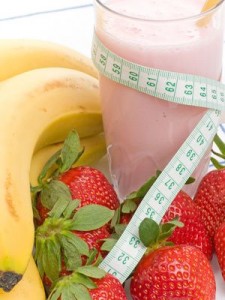Nutrition
 Our body needs a varied and balanced diet to get the essential nutrients it needs. Guidelines for a healthy diet include:
Our body needs a varied and balanced diet to get the essential nutrients it needs. Guidelines for a healthy diet include:
- The right amount of macronutrients – energy giving carbohydrates, high fibre, low fat protein and unsaturated fats
- A balanced supply of micronutrients – vitamins,minerals and trace elements
- A diet low in sugar
- Limited sodium intake
- Plenty of colourful fresh fruit and vegetables to deliver important nutrients – at least five servings a day is a good start, but aim for seven servings
- Adequate hydration – at least 2 litres of water a day to ensure our bodies do not become dehydrated
Balance throughout the day
What you chose to eat is important, but when you eat it is critical to keep a healthy body.
- Starting the day with a healthy nutritious breakfast and a good fluid intake to replenish the essential nutrients and water that have been depleted during the night. A good breakfast sets you up with energy for the day and kick starts your metabolism
- Reasonable sized meals and healthy snacks throughout the day can help to regulate energy levels and may avoid energy peaks and troughs which can sometimes lead to unhealthy diet choices and poor nutrition. A good way to manage your energy and food intake is to eat five smaller meals a day, rather than three larger meals.
- Eating a light and balanced early evening meal, including plenty of fresh fruit and vegetables, can mean food is more easily digested compared to a heavy dinner eaten just before bed.
Personalising Nutritional Intake
Different lifestyles = different nutritional needs
Nutrition to Lose Weight:
- Is calorie controlled, providing a balance of nutrients without excess calories
- Has good levels of protein and fibre to help us feel fuller for longer
- Helps to regulate energy levels to avoid the energy peaks and troughs that can lead to unhealthy diet choices and poor nutrition. Start each day with a healthy breakfast and try to eat five smaller meals a day
For a busy active lifestyle we may require a nutritional plan that:
- Helps maintain energy through the day with the right amount of energy sustaining carbohydrates
- Provides a complete but simple meal solution to avoid missing key nutrients or reaching for less healthy options
For healthy ageing or other life stages we may require nutrition that:
- Supports your gender specific or targeted needs
- Has the right level of nutrients for a naturally decreasing appetite and exercise levels which are associated with older age
- Provides specific nutrients to support the changing needs of your body. For example, a diet high in antioxidants, high fibre diet for digestion and extra calcium for bone strength
A physically active lifestyle or professional sports person may require a nutritional plan that:
- Provides additional good quality calories and nutrients to replace those used or depleted in exercise
- Offers sustained energy and effective hydration to fuel performance
- Provides good quality protein to build and repair muscle and aid recovery
- Provides complex carbohydrates for slow and quick energy release
Fit Clubs combine exercise( metabolic workouts and strength training), personalised nutritional intake from Herbalife and regular body compostion testing to get optimum results.
Have You Had Your Shake After Your Workout? – It’s important to get the right nutrients back into the muscles with 30-60mins of a workout. mportant! Don’t skip your protein shake after you exercise and think that you’ll save calories! A protein shake after training accelerates lean muscle growth, which in turn revs your metabolism and burns more fat.


Leave a Reply